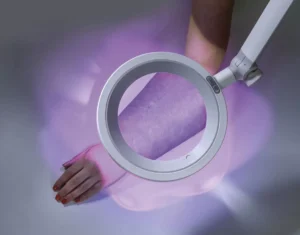Career Change: How To Become A Nurse Practitioner

Despite the over 325,000 registered nurse practitioners already working in the U.S., the country has an ongoing need to increase these positions and fill the ones left by retiring members. Moreover, the American Association of Nurse Practitioners data showed that 36,000 nurse practitioners completed their college programs in 2021.
In addition, statistics from the Occupational Outlook Handbook from the U.S Bureau of Labor Statistics show that it is the fourth fastest growing occupation, tied in fourth place with solar photovoltaic installers at 52%. Nurse practitioners also have a decidedly median pay advantage at $120,680 per year over most other careers on the list.
Playing an Integral Part in National Health
An aging population is a primary factor behind the shortage of over 100,000 doctors the U.S. will face by 2032. As these shortages deepen, especially in rural areas where most over 65s live, nurse practitioners have the skills to fill the void and reduce costs in healthcare.
Furthermore, 24 states have already approved full authority of full practice for nurse practitioners who play an important role in primary, accessible, and holistic healthcare.
Role of the Nurse Practitioner
Licensed nurse practitioners have the training to act as independent healthcare clinicians. Their role encompasses several responsibilities, including treating injuries and illnesses and their prevention.
Thanks to their graduate nursing degree, training, and certification required for obtaining a license. The duties of nurse practitioners are more than those of registered nurses and more similar to those of doctors. In addition, they can prescribe medications, order various diagnostic tests, and provide health guidance.
These leaders in healthcare fill a critical gap in primary care in the country, can conduct research, and play a mentoring role for other nursing staff in medical care facilities, according to their specialty.
Steps to Become a Nurse Practitioner
Several steps can lead to a rewarding career in this popular field of medicine. Most people begin with a nursing degree or bachelor before working as a registered nurse to get some experience before pursuing the master’s degree required. However, despite the commitment necessary, some nursing students opt to proceed directly with a Master of Science in Nursing or even a Doctorate of Nursing Practice degree.
Importance of Incorporating for Nursing Practitioners
Like doctors, nursing practitioners need to ensure they have liability protection in case of being sued for malpractice. However, an LLC structure provides nurse practitioners with asset security in their unique profession by minimizing risks.
Nurse practitioners must protect themselves against two critical types of liability: business and personal.
Business Liability
Since nurse practitioners can serve a wide field of medical specialties, covering from pediatrics to geriatrics and everything in between, a lawsuit can hit them at any time during their career. Besides buying the correct type of insurance to protect themselves against a case, the proper business structure can help them create an impenetrable veil around their assets – both business and personal.
There are four parts to the holding company structure for an operating business. The first is forming a holding company with no liabilities in a state with strong asset protection laws (Wyoming is one example).
The holding company then holds other companies like the operating company serving in the state with the business location, the asset company owning the equipment it rents to the operating company, and the financing company that provides the loans for both companies.
Therefore, this structure protects the operating company against lawsuits since it only has debt to the other companies and no assets. Therefore, insurance policy limits apply when suits need settling, protecting the business from creditors. In addition, Wyoming’s strong asset protection laws hamper anyone trying to pierce the business’s corporate veil.
Personal Liability
Nursing practitioners often face lawsuits as individuals, and their formal business structure can not protect them from personal liability. Good NP malpractice insurance should prove enough to settle a claim, but their personal assets are at risk if it doesn’t cover the amount.
Doctors and other professionals have a way to protect their personal assets with some strategies which nurse practitioners are often unaware. Anonymous Wyoming LLCs can help protect the accumulated assets of business owners and professionals from anyone digging to calculate the sum of the settlement in a lawsuit.
Finally, Wyoming LLCs have the unique advantage of what is known as “charging order protection,” meaning that a judgment against a person does not allow the plaintiff to take assets from their LLC.
Final Take
The growing demand for nursing practitioners means more professionals seek personal asset protection for professional liability. However, since nursing practitioners have limitations, Wyoming LLC Attorney specializes in helping these professionals facing high-risk malpractice lawsuits find the best business and personal liability protection provided by Wyoming state’s LLC laws.






